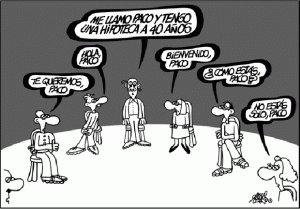MORTGAGES IN SPAIN TO BUY PROPERTY

Fixed rate, variable rate interest & Euribor
If you want to buy a property with a Spanish mortgage you should know that the standard in Spain is the variable interest. The Euro Interbank Offered Rate, also called Euribor, is the reference rate for variable-rate mortgages and is currently at very low levels. Most mortgages in Spain are established according to the Euribor plus the interest rate offered by the bank.
Some banks offer fixed-rate mortgages but the number of fixed-rate mortgages obtained in Spain is very low compared to that of variable-rate mortgages.
A mortgage in Spain or another country?
If you are non-tax resident in Spain and you are thinking of getting a mortgage to buy a home in Spain, it is very likely that a bank in your tax-residence country can offer you a better interest rate than a Spanish bank. Therefore, you should try to find out which banks in your country give mortgages in Spain.
Ways to reduce the interest rate
In Spanish mortgages with variable-interest usually offer a series of extra products are offered that may reduce the interest rate of your mortgage loan. Each of these financial products / conditions can reduce the interest rate between 0,25% – 0,50%, with a maximum of non residents of 0,75% en 1,00%.
Some of these products / conditions are:
- Setting up a direct credit of your salary or pension
- Keeping a minimum monthly balance in the account linked to the mortgage
- Signing up online banking or a virtual mailbox
- Direct debits of service companies (water, electricity, taxes, etc.)
- Having a debit/credit card
- Having a pension plan with a minimal yearly contribution
- Taking a life insurance and a house insurance / contents insurance
Starting the procedure with the bank
If you already know the bank where you want to apply for your mortgage, we suggest that you apply for the financial approval of the mortgage.
At this stage you will provide the bank with a complete list of your income and loans as well as your employment status and the amount of the mortgage loan you need. The bank will enter all these details into the system and tell you if they would approve the mortgage at your income level.
Through this, you can save time and money since you can find out, right from the start, that the bank will not give you a mortgage and it will not be necessary for you to provide all the financial documentation at the beginning. Besides from this it´s not necessary yet to pay the taxation of the property by the bank. This documentation for the bank, by the way, needs to include an extract (´nota simple´) of the Land Book Registry, the Registro de la Propiedad, of the property you are interested in buying. If the bank analyses your financial details and cannot grant you a mortgage, you always have the possibility to go to a different bank.
Extra costs of the Spanish mortgage
Updated information due to the sentence of the Supreme Court in October 2018 as well as the change in the Spanish law based on which the banks pay most of the initial costs of the mortgage.
-
Legal expenses:
These are usually between 3% – 4% of the amount of the mortgage, but are since October 2018 paid for by the banks (and they can be claimed back for mortgages signed since October 2014). They refer to taxes, the notary´s invoice (the Mortgage Deeds are different from the Title Deeds and so they are charged separately), the invoice from the Land Book Registry and processing fees. These expenses are the same regardless of whether the mortgage is obtained from a Spanish or a foreign bank.
-
Solicitor fees:
Even though you can negotiate your mortgage directly with the bank, it is advisable for your solicitor to help you with this process as you will obtain professional advice. Besides of this his work with the bank will be more efficient because he knows the different conditions of the banks, the can check the Spanish general Terms & Conditions and he can negotiate on your behalf.
-
Extra bank expenses:
Opening fee (usually 0,5% – 1% of the mortgage), obliged home insurance (contents insurance) and life insurance for each mortgage account holder.
On this point, I would like to make a special mention about the life insurance policy that most banks usually require to obtain. This insurance policy is obtained for the mortgaged amount and guarantees that the bank can collect the amount due to the bank from the insurance company in the event that the account holders die.
Life insurance is an interesting product for mortgage holders but it may involve a high premium, especially if the insured people are elderly or have any health problems. This is because, in these cases, the premium will be higher as the risk that the mortgage holders die increases. It´s important to know that after the first year you can switch from insurance company to one that offers you better conditions on your life insurance.
It is also common for some banks to require you to pay a single premium for this life insurance policy, i.e., when the mortgage is granted, the bank already charges you for the total insurance premium for the entire mortgage period.
It is important for you to have a summary chart of ALL mortgage costs, so you can know the net amount of the mortgage (after deducting expenses) you will have available to pay for the property.
Legally binding mortgage offer
Once the bank confirms that your mortgage is approved, the legal document that guarantees this is the binding offer (´oferta vinculante´). This bank document functions as a contract and binds the bank to giving you the mortgage under the terms established in the document. The binding offer is usually valid for one month but it may not be valid for less than ten days.
Recommendations when buying a property with a mortgage
Since the final approval of the mortgage by the bank will take 2 or 3 weeks. Therefore it´s wise to start the mortgage procedure as soon as possible, even if you haven´t selected a definitive property yet.
Have you already decided on the property you want to buy, but you do not yet know if you are going to obtain a mortgage? In this case you could try to negotiate with the seller that the reservation document and/or private purchase contract are ´subject to mortgage´. This clause avoids that you would lose your reservation fees and/or down payment if no bank in the end doesn´t grants you a mortgage loan. However, most (Spanish) sellers do not like to sign contracts that are subject to the mortgage so the best thing is to have everything prepared with the bank so that it takes as little as possible to receive a reply.
Also please keep in mind that not all banks are willing to grant mortgages for house in the countryside, or only for a limited percentage.
Saving money by subrogation of a mortgage
If you are a home owner with a Spanish mortgage than -after one year- you have the right to subrogate your mortgage to another band with a lower interest rate of better conditions. In this case the new bank will pay the rest of the loan plus the transfer commission (if this exists) to your current bank and you will pay your mortgage from that moment to the new bank according to the new conditions.
The subrogation cost is very low compared to the cost of signing a new mortgage. Therefore, if the interest rate that the bank offers you is lower, it is very likely for subrogation to be beneficial to you.
Read the extended information about this subject in our pdf-file: Mortgages in Spain to buy property for buying a house in Spain. For general information about buying a house in Andalusia you can also watch this video:
Author: Gustavo Calero Monereo, lawyer at C&D Solicitors Torrox (Málaga, Andalusia)






